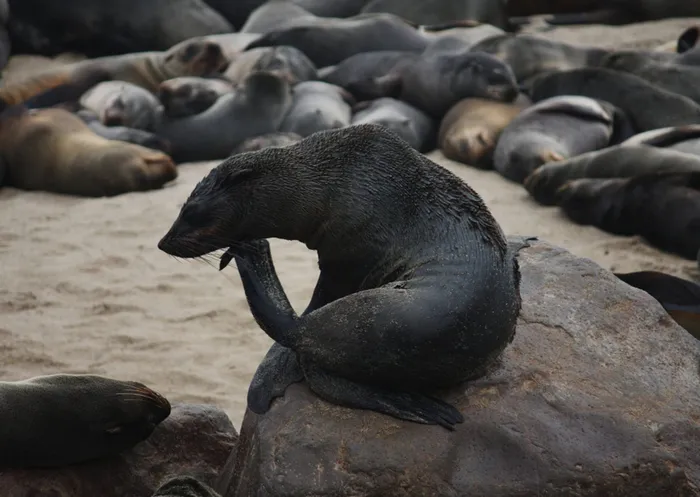Rabies in Cape fur seals continues to rise

Rabies in Cape fur seals continues to rise. Pictured: A Cape fur seal, by Kristen van Schie
Cape Town - With five confirmed cases of rabies in Cape fur seals around the peninsula, an intergovernmental committee has been set up to implement urgent management interventions.
The first case was confirmed by the Western Cape Department of Agriculture Veterinary Services on June 7 in a wild seal bitten by a dog in Bloubergstrand.
The City said yesterday that the intergovernmental committee comprised its representatives with those from the Department of Forestry, Fisheries and the Environment, Western Cape Government, South African National Parks, Cape of Good Hope SPCA, Sea Search, Two Oceans Aquarium and a number of veterinary experts and pathologists, independent marine mammal experts, vets and seal researchers.
“To date, there are five confirmed cases of rabies in Cape Fur Seals, with the earliest current case being that of a seal in October 2023.
“It is imperative to note that only cases confirmed and communicated as such by either the State Vet or the Western Cape Department of Agriculture Veterinary Services should be considered accurate and factual.
“There is no cause for panic and while rabies is new in Cape fur seals, it is endemic in many wildlife populations in South Africa.
“While these cases were detected in seals in Cape Town, the public health information provided applies to all coastlines where Cape fur seals occur.
“All public health advice on rabies will be provided by the Western Cape Department of Health and Wellness in consultation with the National Institute of Communicable Diseases,” the City said.
The cases of rabies is one of few detections in seals worldwide.
Current public health advisory is that rabies vaccination is not advised in the general public, but anyone bitten by a seal must seek immediate medical assistance and get post-exposure prophylaxis.
“The intergovernmental committee will implement a range of actions to monitor infection rates in seals, to undertake ongoing sampling, testing and assessment of the extent of rabies infection in the Cape fur seal population,” the City said.
“All responses to seals that come ashore and meet the case definition for rabies will be undertaken by trained staff in uniform from permitted institutions using appropriate equipment with due consideration of public safety and animal welfare.”
Cape Argus
Related Topics: